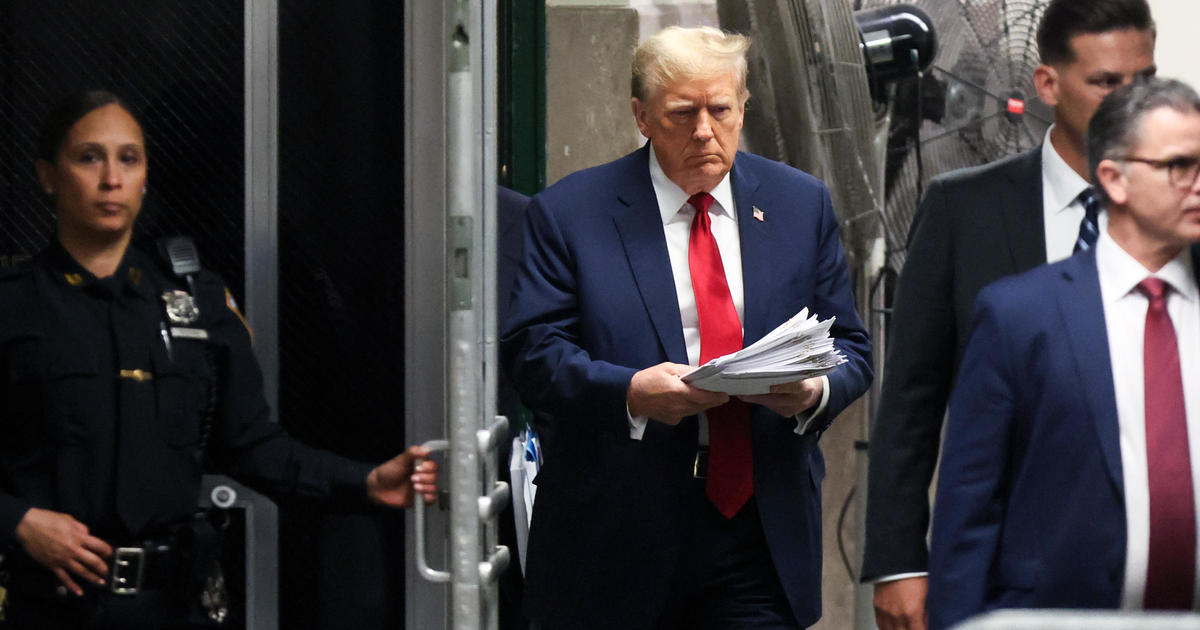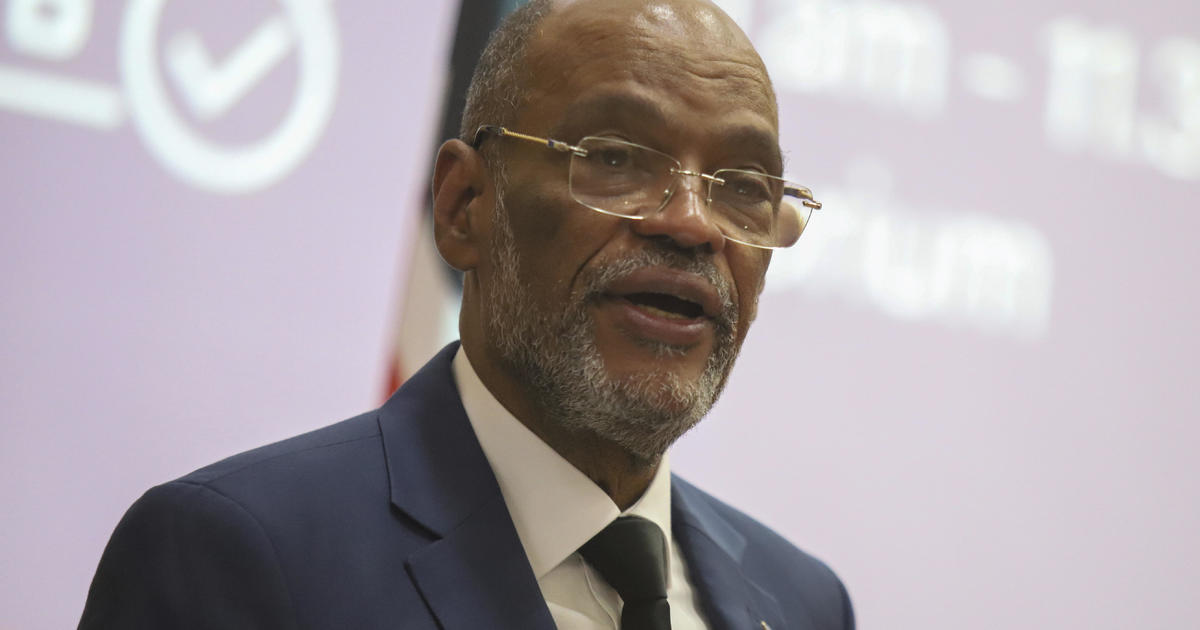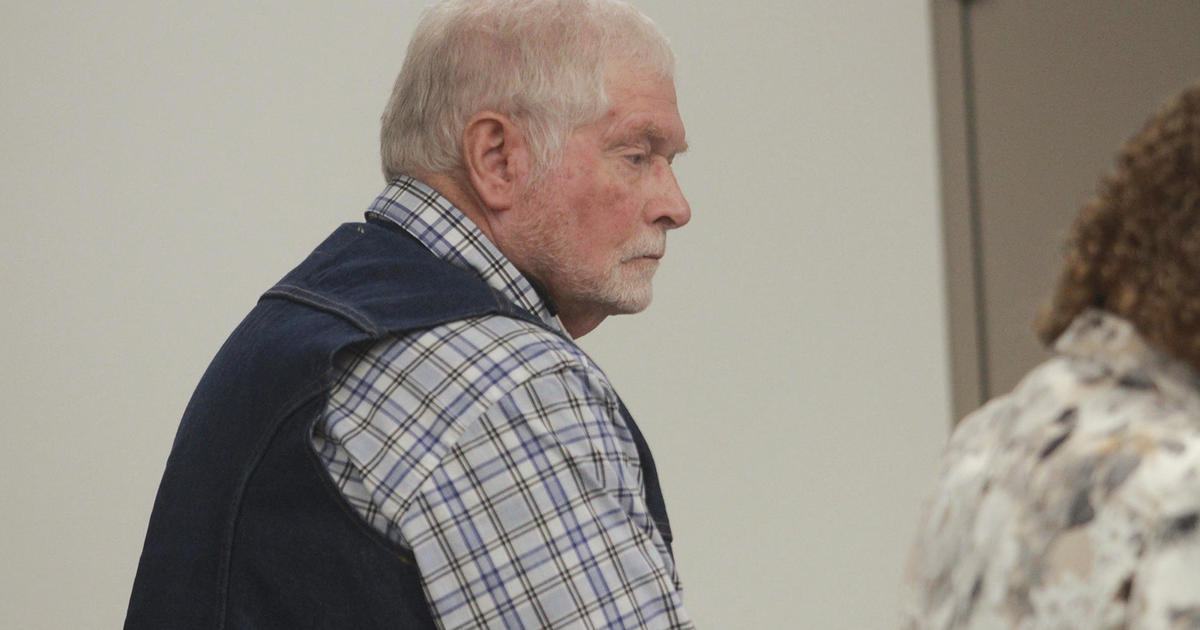U.S. border expulsions of migrant children continue, with few allowed to seek refuge under virus order
U.S. officials transferred just 61 migrant children who arrived at the southern border without their parents to government shelters last month, turning away hundreds more under stringent coronavirus restrictions, according to unpublished government data obtained by CBS News.
Customs and Border Protection (CBP) officials along the frontier with Mexico made more than 1,650 apprehensions of unaccompanied minors in June. Despite laws that protect unaccompanied and underage migrants from speedy deportations, only 61 of them — or fewer than 4% of total arrests last month — were transferred to the Office of Refugee of Resettlement, which Congress charged with caring for these children.
The rest of the unaccompanied children apprehended in June were expelled by border authorities, who have been citing an unprecedented public health directive to rapidly remove most unauthorized migrants from U.S. soil.
More than 2,000 unaccompanied children had been expelled as of June 25, when Acting CBP Commissioner Mark Morgan provided that figure to Congress. More minors have been swiftly removed from the southwestern border since, but CBP has repeatedly declined to say how many, citing ongoing litigation.
The data obtained by CBS News illustrates the scope of the Trump administration's efforts to seal the country's borders to most migrants during the pandemic, regardless of their age or intention to seek humanitarian protections like asylum. Since March, border officials have carried out more than 72,000 summary expulsions authorized by a Centers for Disease Control and Prevention order that was extended indefinitely in May.
Through the CDC order, which officials say is designed to prevent coronavirus outbreaks inside immigration holding cells, the Trump administration has been able to accomplish an objective that had previously proved elusive, despite multiple attempts: shutting off humanitarian programs for border-crossers.
"The numbers in June reflect the continued horrendous treatment of unaccompanied children by the Trump administration," Lee Gelernt, the top immigration lawyer at the American Civil Liberties Union, told CBS News. "The policy of expelling them without an asylum hearing is patently unlawful and inconsistent with our country's values."
Gelernt and the ACLU have been in court challenging the border expulsions of migrant children, which one federal judge appointed by President Trump has suggested likely violate anti-trafficking and public health laws. The lawsuits the ACLU has filed so far seek relief for three unaccompanied minors from Central America, but could pave the way for a direct challenge to the policy.
Before the CDC order took effect in late March, the Office of Refugee Resettlement received an average of more than 70 unaccompanied minors on any given day. In June, there were several days when the agency didn't receive any minors from border officials, according to the data.
In January 2020, 1,900 migrant minors were referred to the refugee office, followed by 2,273 in February and 1,852 in March. In April and May, the first two full months of the CDC expulsions edict being in place, the agency received 62 and 39 children, respectively.
Because of the low border referrals and more than 2,300 discharges during the pandemic, the population of unaccompanied children in U.S. custody dropped below 820 this week, a number not seen for more than a decade. During a surge in U.S.-bound migration of Central American children and families last spring, the Office of Refugee Resettlement had more than 13,000 minors in its network of contracted shelters and other housing facilities.
By citing the CDC order, immigration officials have been able to suspend the legal protections Congress created for unaccompanied underage migrants, including those in a 2008 bipartisan anti-trafficking law generally requiring their transfer to the refugee agency within 72 hours of their apprehension.
U.S. law also exempts unaccompanied children from expedited deportations; offers them the chance to present their case for protection before an asylum office, rather than in an adversarial courtroom setting; and allows them to be connected with child advocates and lawyers during their time in government custody. A 1997 court consent decree known as the Flores Settlement Agreement also requires the government to seek their prompt release to family members in the U.S. or other sponsors.
Unlike migrant adults, unaccompanied children have avenues in addition to asylum to request refuge in the U.S., including a program for abused, neglected or abandoned minors.
The Trump administration, which has sought to restrict or completely dismantle all these safeguards, has argued that they fuel unauthorized migration from poverty-stricken parts of Central America and prompt children to undertake perilous treks to the U.S. southern border. Administration officials have accused parents of taking advantage of these protections and paying smugglers to bring their children across the border.
In a statement to CBS News, a CBP spokesperson said all minors encountered by the agency, including those processed under the CDC order, "receive amenities and services consistent with applicable law and policy."
The spokesperson did not say whether CBP is conducting anti-trafficking screenings on all unaccompanied minors, but noted that some children could be excluded from the expulsions policy if an agent "suspects trafficking or sees signs of illness."




